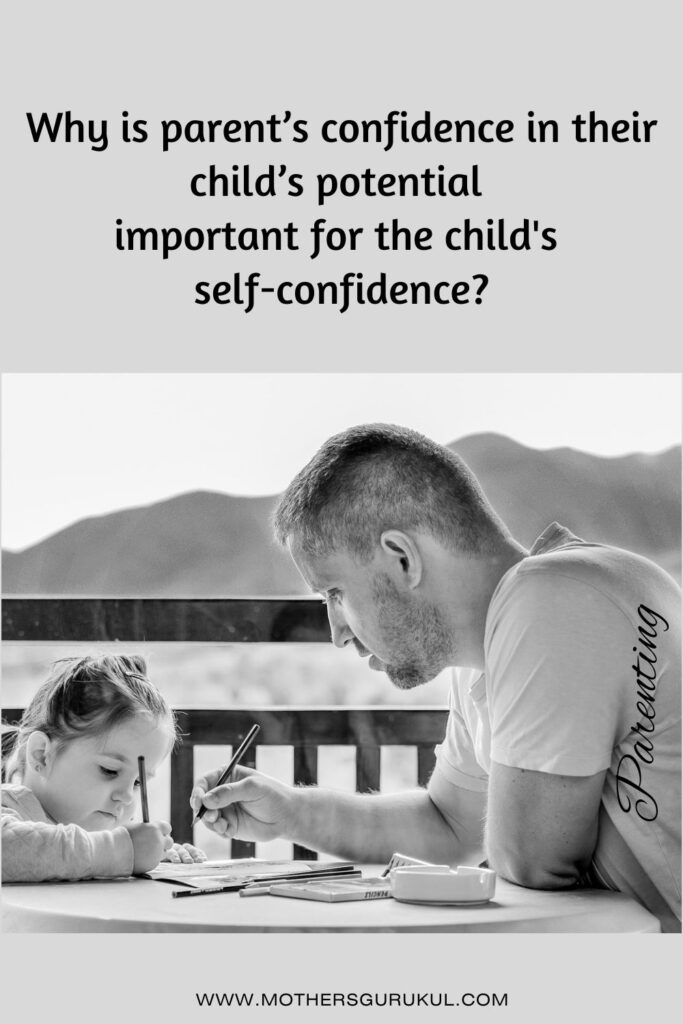I am a mother to a high school and an elementary school child. My high schooler will fly away from our nest in a few years. And my elementary schooler will be learning new ways to face and handle unique aspects of a student’s life. Pressure, anxiety, stress – these words go hand in hand with any school-going child. Regardless of the generation, we all have to go through this phase. As adults, when we look back, we feel that student life was the best period of our life. But let’s think of our student days. Did we feel the same way? We had our own reasons for stress, anxiety, and fear. Same is true with our children. In fact, today it has increased. Now, when our child is unsure about their potential or preparation for an exam, parent’s confidence in their caliber plays a crucial role.
Our children need to develop a “can-do attitude” to grow and discover their full potential. Many kids, though, tend to crumble at the first sight of adversity. Some of them also lack the courage to face new challenges.
Recently, we went on a mini vacation. My daughter found out that the pre-SAT (Preliminary SAT/National Merit Scholarship Qualifying Test is a standardized test administered by the College Board and cosponsored by the National Merit Scholarship Corporation in the United States), which she thought would take place two weeks after our arrival date, was scheduled in the same week in which we were returning from our vacation. It was natural for her to get anxious.
As any other teenager, I could see her getting stressed out. By God’d grace and her hard work, she is doing exceptionally well in her studies. She was confident about her preparation, but this sudden announcement (while we were vacationing) made her anxious. I just said one sentence to her, “I have full confidence in your caliber. Your performance in Pre-SAT is not based on your one day or week’s preparation. It is based on your preparation to date. And I have seen you working hard.”
My husband and I decided to give her some time to gather herself. We told her we were in the lobby and she could call us if needed. After some time, when we came back, her face was slightly relieved. And she sounded calmer and more confident than before. After coming back, she got back to her studies and preparation. After the exam, she said, “It wasn’t that hard. I did well.”
I am not saying that my words changed her mindset. But I am sure they brought a fraction of a change in her anxiety level. We may not realize it, but our confidence in our kid’s potential boosts their confidence to a great extent.
When we are anxious about any result, someone says, “I know you can do it. I have seen your efforts. Just put your best foot forward and forget about the rest.” Well, forgetting about the rest is not easy. Infact, we are worried about this “rest” part. What will happen if I do not achieve the desired result? What will happen after that? The limbic system of our brain puts its best foot forward to control our emotions. What can we do to keep them calm in such a vulnerable moment? It is not a one-day work. It’s a work-in-progress task. So, let’s dive in..
Related article: How to help your children deal with their fear?
Why is parent’s confidence in their child’s potential important for the child’s self-confidence?

Build strong connection
When they are young, children will share every small detail with you . But with time, it decreases. Sometimes parents complain that we cannot match the pace with our teenagers. So, as a mother to a teenager, my answer is – you don’t have to match their pace. Just make sure you are there for them so that your child can feel your presence.
Create a stress-free environment
Performance anxiety increases as the grade level increases. No matter how well the child has studied for the exam, they will feel butterflies in their tummy. But if the environment at home is stress-free and not just performance or marks-oriented, it gives them a breathing space. They should be able to tell you that they didn’t do well with the same level of confidence with which they tell you that I scored full marks. Child have confidence in their parent’s reaction when they feel their parent’s confidence in them.

Teach them self-regulation
Fear and anxiety can take a toll on your child’s behavior. Teaching them how to handle that fear will help them in the long run. Helping them know their triggers and handling those outbursts can help them be emotionally balanced.
Guide them in coping with failures and mistakes
Challenging moments bring out the strong side of their personality. Adversity introduces us to those strengths which, perhaps, we never knew. Parent’s confidence in their child’s potential enables them to sail through many challenging moments. Discuss with them what they think went wrong and how they can improve it next time. This simple conversation shows your trust in their potential.
Apart from these points, as parents, we should discuss our weaknesses and vulnerable moments with our kids. We try to show them our strong side. But we are humans. So, let’s try to be their human role models. We are not a superhero who never had any problems or whose problems were magically solved. Let’s show them we all face challenging situations but can get up and try with double efforts.
Final words,
Parent’s confidence in their child’s potential will motivate them to keep trying regardless of how many times they fail.
